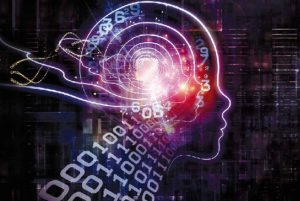According to the Coalition for Epidemic Preparedness Innovations, there are 79 organizations, 14 pharmaceutical manufacturers, 40 biotech companies, and 12 universities and health departments working on a vaccine or treatment for coronavirus. It’s a massive undertaking that crosses borders, breaks down walls, and creates communities – all because that’s what it will take to solve a problem that is affecting everyone.
Developing a vaccination is a long, arduous process that requires trial and error to be done again and again. Data is the big determinant, but access and ability to synthesize those facts are challenges. Enter companies like SAS – an analytics firm that leverages AI technology to fish out meaningful information from a sea of big data.
"Data and analytics are the lifeblood for decision-making during infectious-disease outbreaks. Analytics can provide insights about the spread of disease and the effectiveness of public health action, which can improve the response," said Theresa Do, Support Manager for Federal Healthcare at SAS. "The more information people have about case counts, mortality rates, how a disease spreads, and how contagious it is, the better decisions they can make to limit, prevent, and treat the disease."
The important takeaway, says Do, is that public health and scientific information be made readily available to stakeholders and decisionmakers so that it can guide strategy. Governments hold much of the data needed but if that were to be combined with academic, agency, and other private sources – SAS could then synthesize that information and provide actionable insights that support accurate, informed decision-making by governments and public health organizations.
After the SARS outbreak killed over 750 people around the world, John Brownstein tasked his team with building a Healthmap – a tool that scrapes facts and figures about new outbreaks from online news reports, chat rooms, and other sources. As the Chief Innovation Officer at Boston Children’s Hospital, Brownstein is using his technology to organize the data and create visualizations about how an outbreak is spreading. This information is folded into data gathered from more conventional sources like the US Centers for Disease Control and Prevention and the World Health Organization. Clinicians, researchers, and governments use this resource to guide their work.
Some argue that artificial intelligence is still a fledgling technology and isn’t likely to be helpful with novel outbreaks that emerge quickly, much like Covid-19. Andrew Hopkins is CEO of Exscientia, and much of his work involves training his AI tools to be helpful with drug discovery. He believes that drug trials can go from concept to clinical tests in under two years – probably within the next decade.
Exscientia is wrapping up the initial research phase of a drug that will treat obsessive-compulsive disorder. They finished this stage in under a year, which is about five times faster than usual. Scientists believe there is hope on the horizon for what analytics can do in the future, but the real work is being done with known conditions – mainly because clinical testing is a process that takes months, if not years. At this stage, AI developers would need to plan ahead and choose a virus genome that would likely cause challenges in the future. There are few incentives to approaching drug development this way, so there is little research. Nonetheless, as the capabilities continue to evolve – so will humanity's response.























